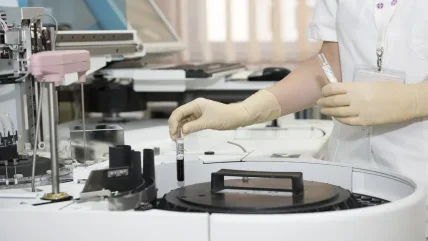
Japan-based Kyowa Kirin has unveiled its plans to invest $530m to build a new advanced biologics manufacturing facility in Sanford in the American state of North Carolina.
The 171,700ft2 plant will be Kyowa Kirin’s first such facility in North America. Construction on the biologics manufacturing plant is slated to begin this year with a goal to complete it in 2027.
The two-bioreactor site will help accelerate the development and production of new biologic treatments to advance the clinical pipeline for diseases with unmet medical needs.
According to the pharmaceutical firm, the upcoming facility will produce advanced biologic therapies, such as next-generation antibodies.
Its operation will support Kyowa Kirin’s planned clinical trials and future commercial activities.
Through the Sanford plant, the Japanese company also aims to establish robust and efficient supply chains capable of adapting to global changes seamlessly.
Additionally, the site has extra land availability that will allow for potential expansion in the future to serve the growing demands of the company’s advancing pipeline programmes.
The construction of the new site is expected to start in the second half of 2024 and is expected to be completed by 2027.
Kyowa Kirin chief supply chain officer and global manufacturing head Toshiyuki Kurata said: “I am very excited to announce that Kyowa Kirin decided to construct a new manufacturing plant for biologics drug substance in the United States.
“The new facility will be scalable with our Takasaki Plant, to help ease technology transfer between the two plants and add production capacity. We believe this will help accelerate drug development and production.”
The addition of the Sanford facility will complement Kyowa Kirin’s existing global manufacturing network, which already includes sites in Takasaki City, Gunma Prefecture, and Ube City, Yamaguchi Prefecture in Japan.
The new biologics manufacturing facility in the US will further enhance the company’s productivity and efficiency by using the manufacturing methods and technologies established at the Takasaki plant.
By constructing the facility within North Carolina’s life sciences hub, the Japanese drugmaker plans to use a network of biomanufacturing resources and a talent-rich environment in the Research Triangle Park region.






